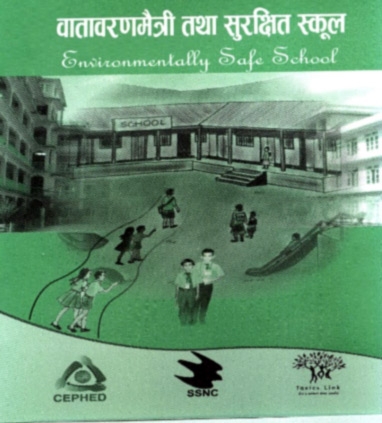Env. Friendly & Safe School Programs

Based on continuous awareness and capacity building on heavy metals throughout the country involving all the stakeholders including science teachers and students, there was increased demand of organizing the environment friendly and safe programs from the schools. In addition to that there are increased numbers of chemicals and equipments as well as other food items such as dry food like noodles, water bottles and Tiffin carrier made of plastics and numerous toxics colorful plastics toys as well as bench desk and school room`s wall has been found to be painted with colorful paints etc are the potential source of exposure to the students and hence an environmentally friendly and safe school programs in selected 20 schools of Nepal along with advocacy with the concerned government officials to address this issues of chemical safety in the schools.
Towards that CEPHED has developed an informative booklet entitled "Environmentally Friendly and Safe School" that briefly include the description of chemical safety, definition of environment and pollution. The booklet also include the description ( issues, effects and solution) of air pollution, water pollution, solid waste, noise pollution, heavy metals (lead, mercury and cadmium), Persistent Organic Pollutants (POPs), plastic bags, mercury free health and education, electrical and electronic waste and lastly about Climate Change and their impacts and solutions. With this publication, several nursing and general schools were approached to organize an interaction programs for the students of class 7 to 10 together. Series of school programs thus organized in several schools ranging from nursing schools, private schools and public schools as well as their teachers were also participated in the interaction programs. Students as well as teachers and principals of these schools were highly appreciated the programs and committed to initiate immediate steps towards contributing to the chemical safety campaign objective such as banning of dry food like noodles, plastic bottles and Tiffin carriers. They have also shown high concerned about the paints they have used in their schools and desk and benches as well as also about the playing dolls and items they had kept in the play and nursery groups. All students were provided with booklet and other posters and fact sheets on heavy metals.




